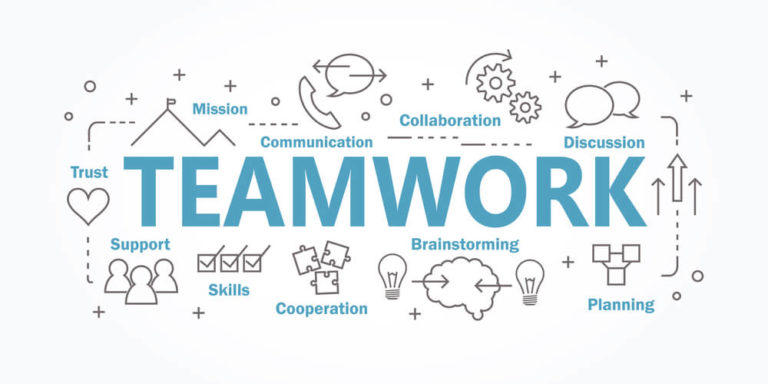Feedbacks can be both positive and negative. Positive feedbacks are usually given to appreciate someone’s work or effort. In contrast, negative feedback is constructive criticism because it includes suggestions for improvement. But, irrelevant of the type of feedback, everyone should be open to it.
However, if you look at the top multinational companies, you will notice that they are always coming up with ways to improve. They always come up with new ideas, learn from their mistakes, and most importantly, use the negative reviews as a tool for improvement.

Additionally, they would use feedback from everyone. It includes its client base, suppliers, employees, and shareholders. Some companies would also identify their “weaknesses” for SWOT analysis by looking at the feedback received.
Therefore, as an employee of any organisation, you will come across several different feedbacks at all phases of your career. Some feedbacks will break you down, whereas others will take you up to cloud 9! But, you should always use them to make yourself even more robust and better.
So, openness to feedback will help you learn many new things and build you into a better person. In addition, you should use them to improve your performance at the workplace and motivate yourself to work harder.
4. Teamwork

Teamwork is very crucial for all businesses and is one of the essential communication skills for workplace. You cannot expect always to work alone and not interact with your team at all. If you want to drive the best results for your organisation, teamwork is essential. Without teamwork, there would be no understanding between coworkers. Also, everyone will only be concerned about them and their performance.
Firstly, teamwork solves problems by letting everyone collaborate. Collaboration with team members will give you many solutions to solve the most complex problems in the workplace. For example, your department needs to cut down expenses on certain things to increase the profit. I can only do this by proper group brainstorming.
Secondly, you get a lot of new ideas through teamwork. Effective teamwork will let you exchange plenty of new ideas. Everyone in the team will have a different perspective to share, which will help bring a unique set of ideas. Therefore, it will be more beneficial for the business in the long run.
Lastly, if you notice that everyone hears your ideas and making important business decisions, you will feel more valued. Also, by working together, team members feel a strong level of commitment and bond with each other. This feeling helps them to work harder towards a common goal.
5. Transparency
Workplace transparency means the organisation is very open to all its employees. When there is a level of transparency between different employees and their managers is essential. Because there will be less hesitation to share information and open up with each other.
Moreover, everyone needs to be on the same page. It will be an impractical notion to assume that everybody is in total agreement always. In addition, when one individual isn’t lined up with the organisation, everybody beneath them will be off the mark as well. Therefore, managers and employees under them should be on the same page and have a similar goal.
Also, some organisations make a lot of false promises to their employees. Later on, when the employees find out that the organisation they are working for is lying to them, they get very disheartened. It adversely affects their overall performance. Sometimes, employees are also encouraged by their managers to be dishonest to their clients. In such as situation, even if the client doesn’t figure out the truth, it still makes the corporate environment very toxic and dishonest.
6. Non-Verbal Communication
Verbal communication isn’t the only way of communicating with your colleagues at work. Several gestures can help you share with others. Eye contact, hand movements, body language, etc., are some of them. Sometimes, you can go a day at work without talking to anyone at the workplace. But still, connect with everyone with your non-verbal communication skills.

Firstly, proper eye contact is the first and most important way of communicating non verbally. It builds the initial connection and attachment between two individuals. When you maintain eye contact with someone, it shows you are interested in that person. At the workplace, proper eye contact builds a particular bond and trustworthiness.
Secondly, another medium of communication is your body language. Your body reciprocates while talking verbally or listening to someone. It is crucial since it helps the third person determine how attentive or respectful you are towards them. The way you sit, stand while speaking to someone or even the way you move your hands while talking- all of these contributes to your body language.
Lastly comes your facial expressions. If your colleague is sharing an exciting story from a recent trip, try to show that excitement in your face. It would make the other person feel irritated if you always have a regular, straight look. Try to change your facial expressions and nod your head occasionally, depending on the situation.
7. Emotional Intelligence
The exact definition of emotional intelligence is “The capacity to manage your emotions and understand them”. If you can balance your emotions properly at the workplace, it would be more beneficial for you. It will give you more room to collaborate better with your colleagues and keep you away from conflicts at the workplace.
First of all, you need to figure out which situations trigger you the most and how you react in those situations. Then, you can observe how you respond to your managers and co-workers in certain situations. Being self-aware of your emotions is very important.

Secondly, being emotionally intelligent allows you to understand non-verbal communication. So if you notice any change in someone’s behaviour through their body language, you can approach them. For instance, if you see a co-worker is not in their usual behaviour and face looks gloomy, you can ask them what’s wrong and how you can help them somehow.
Lastly, through emotional intelligence, you can get a lot of appreciation and positive feedback. This can give you promotions, and pay raises too. It is almost similar to leadership skills. Because emotional intelligence will provide you with more patience. You can also be more empathetic and spread positivity at your workplace. It is something that leaders generally do!


![]() 17 minutes
17 minutes


![]() 17 minutes
17 minutes